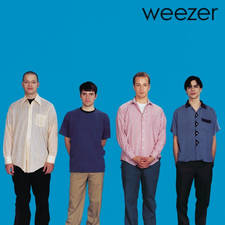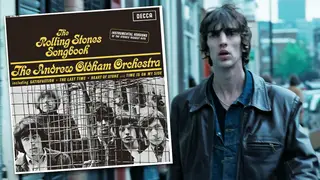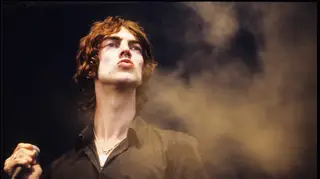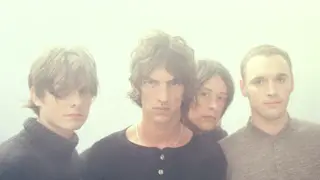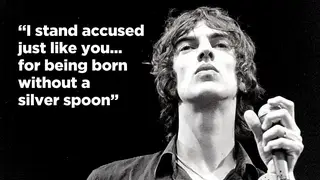The inspiration behind The Verve's History single
18 September 2024, 17:30 | Updated: 18 September 2024, 18:36

The Verve - History
We celebrate one of The Verve's most-loved albums and its iconic single.
Listen to this article
The Verve's A Northern Soul was released on 20th June 1995.
The album included the singles This Is Music and On Your Own, but arguably its standout track was History.
The single, which was released on 18th September on the same year, is one of the band's most-loved tracks among die-hard fans, often praised for its evocative lyrics and rousing violin-led instrumentation, but did you know it was inspired by English poet William Blake?
Get the history behind The Verve's 1995 single here.

What inspired The Verve's History single?
It's well known that the first few verses of History are based on the William Blake poem London.
Blake's poem - which was published in his 1794 Songs of Experience collection - begins: "I wander thro’ each charter’d street/Near where the charter’d Thames does flow/And mark in every face I meet/Marks of weakness, marks of woe".
Meanwhile, Richard Ashcroft's lyrics begin: "I wander lonely streets/Behind where the old Thames does flow/And in every face I meet/Oh reminds me of what I have run from".

- Why Richard Ashcroft owes Song For The Lovers to Joy Division
- Why Noel Gallagher dedicated Cast No Shadow to Richard Ashcroft
That's not where the similarities end either...
Blake's second stanza reads "In every cry of every Man/In every Infants cry of fear/In every voice: in every ban/The mind-forg'd manacles I hear".
This reflects in the next line of The Verve's song, with the lines: "In every man, in every hand/In every kiss, you understand," and help forms much of its melody.
However, Blake isn't necessarily the only artist that may have had an impact on History.
While Ashcroft drew upon the English bard's famous words for his opening lyrics, he may have also drew upon The Beatles legend John Lennon.

The strings on the opening of History - which were arranged by Wil Malone - marked the band's first use of a string section in their music. Malone would go on to work with the band on their seminal Urban Hymns album as well as Ashcroft's solo debut, Alone With Everybody.
The intro on History, bears a resemblance to John Lennon's 1973 single Mind Games, which comes from his album of the same name.
Listen to it here:

Mind Games - John Lennon and The Plastic U.F.Ono Band
With such huge figures influencing the song's sound and style, you may not be surprised to hear another icon is connected to the track.
It's believed that none other than Oasis legend Liam Gallagher provides handclaps on the recording.
It's not the last time Liam would feature on a Verve song, either as he's believed to have made a secret cameo on The Verve's Come on track, which ends their Urban Hymns album.
Biblical.
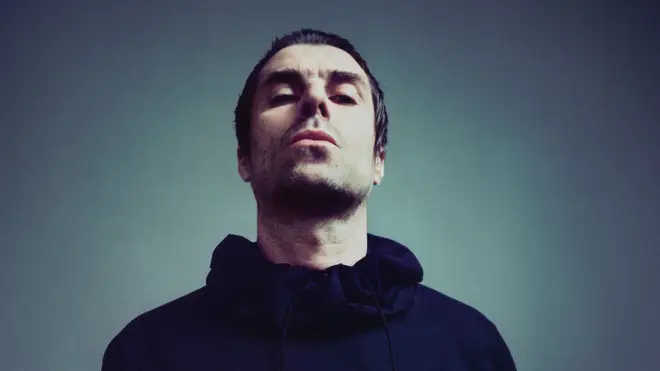
When it comes to the subject of the song, that still remains somewhat of a mystery.
History deals with themes of love and loss and it has been claimed the song was written about Ashcroft's split with his girlfriend at the time, who ran off with his childhood friend.
Looking at these lyrics, it's not difficult to see why fans may have come to that conclusion.
"And one and one is two/But three is company"
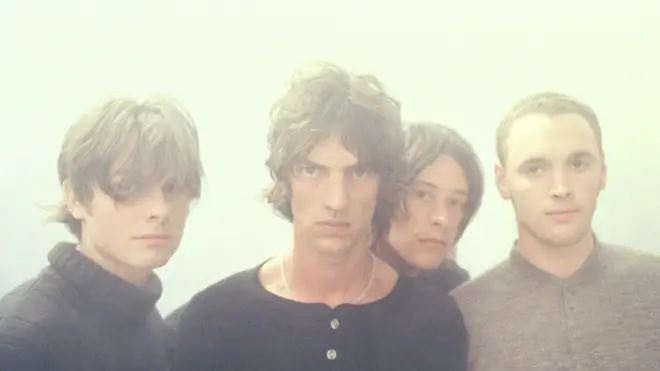
However, for the most part, Ashcroft is tight-lipped about the subject and if any split remains synonymous with the song, it's that of the band itself.
The Verve were on very rocky road during the release of A Northern Soul, with the band parting ways in 1995 in what was to be the first of three splits.
This is the likely reason why there's no original video for History, with the visuals we know today still comprising of clips from the band's previous releases.
Fittingly enough, the main CD artwork of the single sees the band stand under a cinema sign in Times Square, which reads: "All farewells should be sudden".
Though the band went on to get back together and release the iconic Urban Hymns in 1997 and Forth in 2008, they couldn't quite manage to resolve their differences for long enough.
Richard Ashcroft has gone on to maintain a successful solo career and play festivals and headline sets.
The rest, as they say, is History...

Richard Ashcroft sings Song For The Lovers (Live For Radio X)
